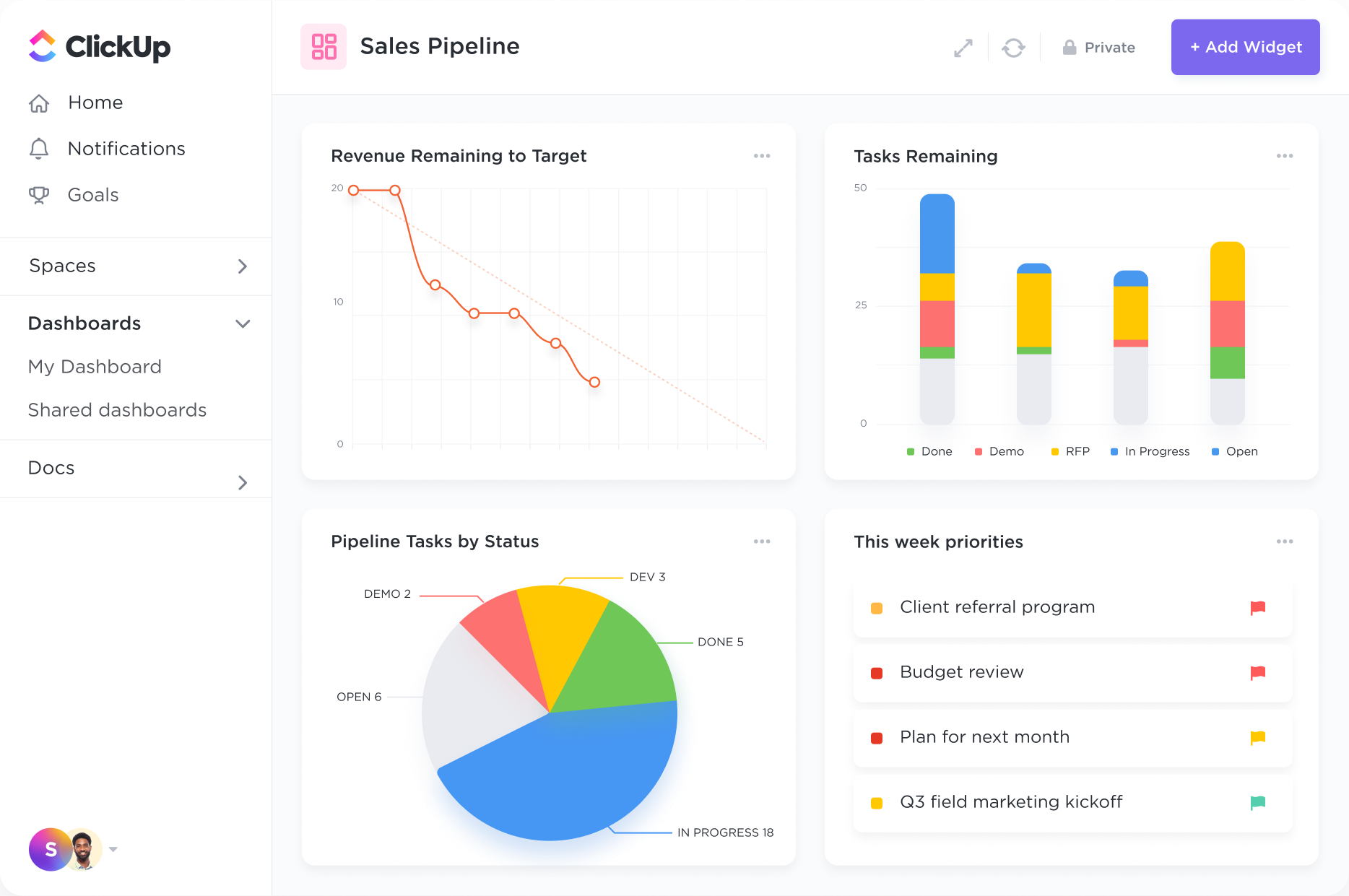Performance Dashboards
Analyze data for customer insights.
Create high-level views to monitor customer lifetime value, average deal sizes, and more. ClickUp's 50+ Dashboard widgets make it easy to visualize all of your customer data in one place.

Gantt Charts
Streamline your recruitment agency's operations with ClickUp's customizable CRM system. Organize candidate profiles, track interactions, and manage placements all in one place. Maximize efficiency and stay ahead of the competition with ClickUp's powerful features designed specifically for recruitment agencies. Sign up now to revolutionize how you manage your client relationships!
Free forever. No credit card.
Performance Dashboards
Create high-level views to monitor customer lifetime value, average deal sizes, and more. ClickUp's 50+ Dashboard widgets make it easy to visualize all of your customer data in one place.

CRM Views
Manage everything from sales pipelines, customer engagement, and orders with ClickUp's 10+ highly flexible views. Easily track and manage your accounts on a List, Kanban Board, Table view, and more.

A CRM provides a centralized platform where all candidate details, resumes, communication history, interview feedback, and placement status can be stored and easily accessed by recruiters. This eliminates the need for multiple spreadsheets or disparate systems, ensuring all team members have the most up-to-date information.
CRMs can automate the process of sourcing candidates from various channels, such as job boards or social media platforms. It also helps in tracking candidate interactions, scheduling interviews, sending follow-up emails, and updating candidate statuses, saving time and improving efficiency for recruiters.
CRMs enable recruiters to maintain personalized communication with candidates at every stage of the recruitment process. By tracking interactions and preferences, recruiters can provide a tailored experience, leading to stronger relationships and increased candidate satisfaction.
Recruitment teams often work on placements together, requiring seamless collaboration. A CRM facilitates team coordination by allowing visibility into each team member's activities, notes, and tasks related to candidates. This ensures that everyone is on the same page and can work together efficiently.
CRMs offer analytics tools that provide insights into recruitment metrics like time-to-fill, source of hire, candidate quality, and placement success rates. These analytics help recruiters in evaluating their strategies, identifying bottlenecks, and making data-driven decisions to improve overall recruitment performance.
CRM software can help streamline the recruitment process for a recruitment agency by centralizing candidate information, automating communication, tracking the hiring pipeline, and providing analytics to optimize recruitment strategies and improve candidate experience.
CRM software in a recruitment agency centralizes candidate data, streamlines communication, automates tasks, improves candidate engagement, enhances tracking of recruitment metrics, and enables personalized candidate interactions to increase hiring efficiency and effectiveness.
Yes, CRM software can integrate with various recruitment tools and platforms to streamline processes, centralize candidate data, automate workflows, and improve communication, ultimately enhancing efficiency and productivity in a recruitment agency.